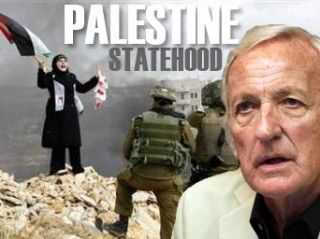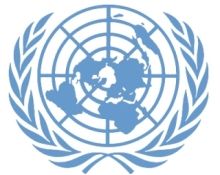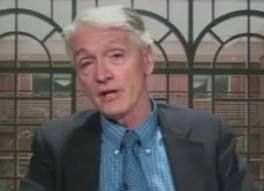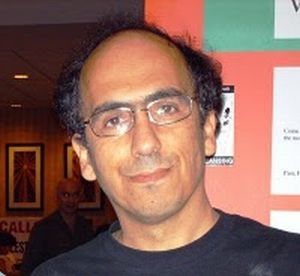
Publisher:
Bonnie King
CONTACT:
Newsroom@Salem-news.com
Advertising:
Adsales@Salem-news.com

~Truth~
~Justice~
~Peace~
TJP
Aug-30-2011 17:53


 TweetFollow @OregonNews
TweetFollow @OregonNews
Palestinian Statehood: The Ayes And The Nays
Debbie Menon for Salem-News.comIsrael's apartheid is strikingly similar to what was seen in South Africa, Pilger's documentary goes to the heart of the matter.
 |
(MELBOURNE) - John Pilger, renowned investigative journalist and documentary film-maker, is one of only two journalists  to have twice won British journalism’s top award; his documentaries have won academy awards in both the UK and the US.
to have twice won British journalism’s top award; his documentaries have won academy awards in both the UK and the US.
In a New Statesman survey of the 50 heroes of our time, Pilger came fourth behind Aung San Suu Kyi and Nelson Mandela.
John Pilger details the war in Palestine through interviews of Palestinian and Israelis.
It details the progress of peace and the strategies and policies at work on both sides of the issue.
Watch the program by John Pilger (continues below)
Countries that support the recognition of a Palestinian state:
A partial listing of the Ayes, as of July 2011…
# Name Date of recognition
- Algeria 15 November 1988
- Bahrain 15 November 1988
- Iraq 15 November 1988
- Kuwait 15 November 1988
- Libya 15 November 1988
- Malaysia 15 November 1988
- Mauritania15 November 1988
- Morocco 15 November 1988
- Somalia 15 November 1988
- Tunisia 15 November 1988
- Turkey 15 November 1988
- Yemen 15 November 1988
- Afghanistan 16 November 1988
- Bangladesh 16 November 1988
- Cuba 16 November 1988
- Indonesia 16 November 1988
- Jordan 16 November 1988
- Madagascar 16 November 1988
- Malta 16 November 1988
- Nicaragua 16 November 1988
- Pakistan 16 November 1988
- Qatar 16 November 1988
- Saudi Arabia 16 November 1988
- United Arab Emirates 16 November 1988
- Serbia 16 November 1988
- Zambia 16 November 1988
- Albania 17 November 1988
- Brunei 17 November 1988
- Djibouti 17 November 1988
- Mauritius 17 November 1988
- Sudan 17 November 1988
- Cyprus 18 November 1988
- Czech Republic 18 November 1988
- Slovakia 18 November 1988
- Egypt 18 November 1988
- India 18 November 1988
- Nigeria 18 November 1988
- Seychelles 18 November 1988
- Sri Lanka 18 November 1988
- Belarus 19 November 1988
- Guinea 19 November 1988
- Namibia 19 November 1988
- Ukraine 19 November 1988
- Russia 19 November 1988
- Vietnam 19 November 1988
- China, People’s Republic of 20 November 1988
- Burkina Faso 21 November 1988
- Comoros 21 November 1988
- Guinea-Bissau 21 November 1988
- Mali 21 November 1988
- Cambodia 21 November 1988
- Mongolia 22 November 1988
- Senegal 22 November 1988
- Hungary 23 November 1988
- Cape Verde 24 November 1988
- Korea, North 24 November 1988
- Niger 24 November 1988
- Romania 24 November 1988
- Tanzania 24 November 1988
- Bulgaria 25 November 1988
- Maldives 28 November 1988
- Ghana 29 November 1988
- Togo 29 November 1988
- Zimbabwe 29 November 1988
- Chad 1 December 1988
- Laos 2 December 1988
- Sierra Leone 3 December 1988
- Uganda 3 December 1988
- Congo, Republic of the 5 December 1988
- Angola 6 December 1988
- Mozambique 8 December 1988
- São Tomé and Príncipe 10 December 1988
- Congo, Democratic Republic of the 10 December 1988
- Gabon 12 December 1988
- Oman 13 December 1988
- Poland 14 December 1988
- Botswana19 December 1988
- Nepal 19 December 1988
- Burundi 22 December 1988
- Central African Republic 23 December 1988
- Bhutan 25 December 1988
- Rwanda 2 January 1989
- Ethiopia 4 February 1989
- Iran 4 February 1989
- Benin May 1989 or before
- Equatorial Guinea May 1989 or before
- Gambia May 1989 or before
- Kenya May 1989 or before
- Lebanon May 1989 or before
- Vanuatu 21 August 1989
- Philippines September 1989
- Swaziland July 1991 or before
- Kazakhstan 6 April 1992
- Azerbaijan 15 April 1992
- Georgia 25 April 1992
- Bosnia and Herzegovina 27 May 1992
- Tajikistan 2 April 1994
- Uzbekistan 25 September 1994
- South Africa 15 February 1995
- Kyrgyzstan November 1995
- East Timor 1 March 2004
- Papua New Guinea 4 October 2004
- Paraguay 25 March 2005
- Montenegro 24 July 2006
- Costa Rica 5 February 2008
- Côte d’Ivoire 2008 or before
- Venezuela 27 April 2009
- Dominican Republic 14 July 2009
- Brazil 1 December 2010
- Argentina 6 December 2010
- Bolivia 22 December 2010
- Ecuador 24 December 2010
- Chile 7 January 2011
- Guyana 13 January 2011
- Peru 24 January 2011
- Suriname 1 February 2011
- Uruguay 15 March 2011
- Malawi 19 April 2011
- Lesotho 6 June 2011
- Syria 18 July 2011
- Liberia 2011
- Turkmenistan 2011 or before
List taken FROM
Be a part of Peace and Progress!!
If your country is not on the list, urge your government to join in…. USA, Canada, Australia and Columbia in particular.
No one will be disenfranchised — Prof. Francis Boyle
Oxford University Professor Guy Goodwin-Gill prepared a legal opinion, claiming granting Palestine Statehood will result in the PLO losing its status. In addition, he said, diaspora refugees will be disenfranchised.
University of Illinois Law Professor Francis Boyle, former PLO legal advisor in drafting its 1988 Declaration of Independence discounted Goodwin-Gill’s concerns, saying he built explicit safeguards into the 1988 Declaration of Independence he drafted “to make sure that his doomsday scenario does not materialize.”
 University of Illinois Law Professor Francis A. Boyle |
My Dear Palestinian Friends:
This Memo is based upon most erroneous assumptions. But in a nutshell, in the 15 November 1988 Palestinian Declaration of Independence that was approved by the PNC representing all Palestinians all over the world, the Executive Committee of the PLO was set up as the Provisional Government for the State of Palestine—pursuant to my advice.
In addition, the Declaration of Independence also provides that all Palestinians living around the world automatically become citizens of the State of Palestine—pursuant to my advice. So the Executive Committee of the PLO in its capacity as the Provisional Government for the State of Palestine will continue to represent the interests of all Palestinians around the world when Palestine becomes a UN Member State. Hence all your rights will be preserved: for all Palestinians and for the PLO. No one will be disenfranchised.
The PLO will not lose its status. This legal arrangement does not violate the Palestinian Charter, but was approved already by the PNC. Unfortunately, this professor is not aware of all the legal and constitutional technicalities that were originally built into the Palestinian Declaration of Independence to make sure that his doomsday scenario does not materialize–at my advice.
All of your rights have been protected and will be protected by Palestine becoming a Member State of the United Nations, including the Right of Return. Indeed, in the Memo I originally did for President Arafat and the PLO back in 1988, I explained how we could obtain UN Membership.
All of the advice that I gave to President Arafat and the PLO in 1987 to 1989 was originally premised on the assumption that someday we would apply for UN Membership. That day has come. Please move forward. I have been working for this Day since I first proposed UN Membership for Palestine along the lines of Namibia at the United Nations Headquarters in New York in June of 1987. Palestine’s Application for UN Membership was my idea.
When my Client and Dear Friend the late, great Dr. Haidar Abdul Shaffi Chair of the Palestinian Delegation to the Middle East Negotiations instructed me to draft the Palestinian counter-offer to the now defunct Oslo Agreement, he most solemnly told me:
“Professor Boyle, we have decided to ask you to draft this Interim Peace Agreement for us. Do whatever you want! But do not sell out our right to our State!”
And I responded to Dr. Haidar:
“Do not worry, Dr. Abdul Shaffi. As you know, I was the one who first called for the creation of the Palestinian State back at United Nations Headquarters in June of 1987, and then served as the Legal Adviser to the PLO on its creation. I will do nothing to harm it!”
As I promised Dr. Haidar, I would do nothing to harm Palestine and the Palestinians.
In addition, the Palestinians are acting in good faith and with sincerity. They are part of our Diaspora. But they have been critically misled and misinformed by that Opinion by the Brit Lawyer from the Brit University. The Brits created this problem in the first place. Why would any Palestinian listen to a Brit lawyer from a Brit University?.
They do not even understand that once we become a UN Member State, we can ratify the Rome Statute for the International Criminal Court and then file a formal State to State Complaint against Israeli Officials, upgrading the lower level Complaint President Abbas filed at my advice. They also do not know that once we become a UN Member State, we can ratify the Genocide Convention and sue Israel for Genocide at the World Court, pursuant to the advice I had already given President Arafat and President Abbas, and get a temporary restraining Order against the Zionists, that would then go to the Security Council for enforcement and if vetoed by the Americans, to the General Assembly for enforcement under the Uniting for Peace Resolution . With these proceedings we might be able to halt the Zionist settlement project of all Palestine in the immediate future. How else are we going to do this?
Francis A. Boyle, Professor of International Law Legal Advisor to the PLO and H.E. Yasser Arafat on the Palestinian Declaration of Independence. Legal Advisor to the Palestinian Delegation to the Middle Peace Negotiations (1991-1993) and H.E. Dr. Haidar Abdul Shaffi Author, Palestine, Palestinians and International Law (2003) and The Palestinian Right of Return under International Law (2011)
IN CONCLUSION:
 Professor Mazin Qumsiyeh |
The internet is abuzz about the September bid at the UN for an upgrade in the status of Palestine. There are many arguments on all sides being presented. Even international legal experts differ, Guy Goodwin-Gill holds a very negative opinion about going to the UN while Francis Boyle a very positive one (Abdullah Abu Eid, a Palestinian legal expert holds a somewhat intermediary position). Some points are convincing to some of us and some not. The discussions are getting intense but in actuality are coming a bit too late. It is not clear that the opinions offered will affect the course going forward since no mechanism exists for Mr. Mahmoud Abbas to seek and receive input in a democratic and open way. What would have helped would be an open democratic decision making process at the PLO. The Palestinian National Council should have been revived democratically as agreed to three times already in discussions between the factions. If the PNC had been constituted, a real discussion among Palestinians would have happened that address these existential issues like whether to go to the UN or not and more importantly how to move before and after such events to ensure success regardless of the decision we collectively make. No real discussion of these issues was possible or allowed in the structure of Oslo. It is that lack of rational and democratic decision making since Oslo (intentional) that really harms the cause of Palestine.
Prof. Mazin Qumsiyeh teaches and does research at Bethlehem and Birzeit Universities in occupied Palestine. He previously served on the faculties of the University of Tennessee, Duke and Yale Universities. He served on the board/steering/executive committees of a number of groups including Peace Action Education Fund, the US Campaign to End the Occupation, the Palestinian American Congress, Association for One Democratic State in Israel/Palestine, and BoycottIsraeliGoods.org. He is now president of the Palestinian Center for Rapprochement Between People. He advised many other groups including Sommerville Divestment Project, Olympia-Rafah Sister City Project, Palestine Freedom Project, Sabeel North America, and National Council of Churches of Christ USA. He is an active member of a number of human rights groups (Amnesty, Peace action, Human Rights Watch, ACLU etc.). He published several books of which the most acclaimed “Sharing the Land of Canaan: human rights and the Israeli/Palestinian Struggle” which was also translated to spanish. For more about his work go to: http://qumsiyeh.org
Also see:
General Assembly Palestinian Statehood Vote
Follow-Up Comments on Palestinian Statehood Vote
Sources: Desert Peace / Veterans Today
 Debbie Menon is an independent writer based in Dubai. An advocate for Justice and Peace for Palestinians in the Occupied Territories. Her main focus is US-Middle East Policy issues while writing cutting edge commentary for today's growing number of Internet news viewers seeking unfiltered information about real events. She is committed to exposing Israel Lobbies control of U.S. Middle East Policy. Her Website, mycatbirdseat.com, is a source for many other Salem-News.com reports.
Debbie Menon is an independent writer based in Dubai. An advocate for Justice and Peace for Palestinians in the Occupied Territories. Her main focus is US-Middle East Policy issues while writing cutting edge commentary for today's growing number of Internet news viewers seeking unfiltered information about real events. She is committed to exposing Israel Lobbies control of U.S. Middle East Policy. Her Website, mycatbirdseat.com, is a source for many other Salem-News.com reports.
Debbie has a fresh perspective in her interpretation of historical events and their relationship to today's current news developments between Palestine and Israel. She can be reached at: debbiemenon@gmail.com
 |
 |
 |
Articles for August 29, 2011 | Articles for August 30, 2011 | Articles for August 31, 2011
Salem-News.com:


googlec507860f6901db00.html


Terms of Service | Privacy Policy



All comments and messages are approved by people and self promotional links or unacceptable comments are denied.
Debbie Menon August 31, 2011 12:06 am (Pacific time)
John Quigley, author and professor of international and comparative law
[Return to Top]The initiative is no threat to the Palestinians, and it will only improve their standing. This is because as a matter of international law, states must ensure that human rights are not being violated.
If Palestine were to become a member state it would be interacting with other states, and this is a much stronger position. It can pursue remedies at the diplomatic level in its capacity as a state. It will do favors for other states. It can demand favors in return. It can also pursue prosecutions of Israeli officials for war crimes, such as settlements, putting pressure on Israel on an issue that has been the principal obstacle to a peace settlement. Palestine will have leverage that is presently lacking.
This is all missing from the Goodwin-Gill opinion because he was not asked to deal with it, just the issue of an upgrade. His opinion does not relate to UN membership, and does not purport to have any relevance to the issue of UN membership.
Rather than posing a threat to the refugees, the refugees will in fact be in a much stronger position. Legally, while people might leave states, if the refugees are nationals then the state cannot refuse to allow nationals to return. It is safe to assume that Israel will use this as a pretext to argue that the refugees can only return to their new state, but they will always find a reason not to allow the refugees to return.
Goodwin-Gill and others in civil society also view the bid as a threat to the PLO, but this too is exaggerated. It was the PLO that decided in 1988 to constitute itself as the government of the State of Palestine, making clear that all Palestinians would be represented by it. The General Assembly accepted the PLO as the sole representative of the Palestinian people. That is what it was asked to do at the time, and that is what it is likely to do in September if asked to accept Palestine as a state.
Quigley has agreed with Boyle independently. And he just wrote a book on Palestinian Statehood published by Cambridge U Press.
©2026 Salem-News.com. All opinions expressed in this article are those of the author and do not necessarily reflect those of Salem-News.com.